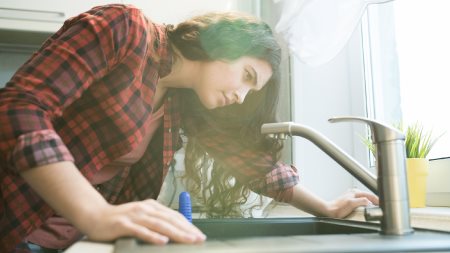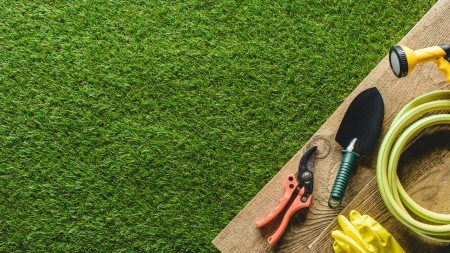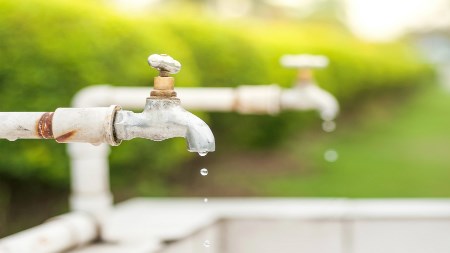As lockdown continues, there are serious concerns over the ability to pay monthly utility bills. This has been exacerbated because families, forced to spend more time at home, are now using their utilities to a greater extent. Children being educated online, and work-at-home parents and adults are using more data, and thus power, and of course water consumption has increased through many more toilet flushes, the imperative to wash hands more frequently and longer, and the umpteen cups of tea or coffee.
Sonja, a 60+ year-old woman, who has been eking out a living as a sales representative, has just five years left before retirement. She has had her two university-going sons return home for lockdown. Having been living literally from month-to-month prior to the outbreak of coronavirus, Sonja now finds herself tenuously considering every cent she spends given that the sales industry in which she works cannot operate until at least Level 2. No commission for her means the strain on her finances is at breaking point.
What little joy and comfort she has left, she says is found in her garden, yet this is, even after just six weeks, showing signs of weariness. ‘It’s a thirsty garden,” she says, “but now, every time I turn on the tap to water it, I think of all the money that I don’t have now and of all the money I have invested in the past to make this my sanctuary. I know the burden of struggle as a single Mom, and just when I thought I had it all together, I’m back to those days when I have to consider that every single drop of water is money I don’t have.”
Water is considered the most valuable resources on earth and here we are now using it as a precaution to contracting the silent and sinister coronavirus. Another home owner, Kamal, says he despairs every time water from washing up the many more dishes drains down the sink. He says that he too thinks of it as rands and cents just being washed away. What Kamal and Linda are most fearful of is the monthly council bill, which although currently indicates an average consumption, at some point when the meter readers are able to revisit homes, will be much higher than usual.
“I’m sure that our bills at some point are going to be a shock given that my family and I have been at home since mid-March,” says Kamal. “When Level 5 was announced, suggesting only three weeks in self-isolation, I felt our budget could cope. It wasn’t great but we could survive, and our water consumption was not a consideration. But now all these weeks later, it’s become something that I feel almost paranoid about.”
If nothing else lockdown has emphasised just how valuable water is, and not just as a helpful sanitizer but as a cost factor. With more time to actually witness and think about how their water consumption impacts on their pocket, home owners have a renewed focus on water waste. Suddenly a pay-as-you-go water meter doesn’t seem all that expensive to install, because if nothing else, being able to see on a daily basis what that usage is, leads to changes in waste and firmer budget control.
Lockdown however prevents the installation of water meters, and with expenses already directed at other necessary essentials, even other water cost-saving devices like water tanks are not practical. However, there are a number of smaller efforts that can be undertaken at little or no cost, and when added together may be a matter of ‘looking after the drops, takes care of the litres.’
Toilets
Consider than on average a person flushes a toilet 5x a day. Generally inside of each cistern is an indicator of the amount of water the cistern holds in litres. A 9-litre tank, for example, at x5 flushes per person means you are flushing 45 litres per day. Times that by four people, it is 180 litres per day. If you check your council bill for the cost of water, you’ll therefore be able to determine more or less what your toilet flushes are costing you per day.
It is commonly advertised that really all we need is 6-litres to flush a toilet, meaning that using the formula above, you will save 15 litres per person per day.
While no-one advocates that you should not be flushing the toilet, there are certain cost-savings that can be had from applying the following:
- Check for leaks and examine seals to ensure that potential leaks can be prevented.
- Ensure all internal devices are working as they should.
- Place a brick, or plastic bottles filled with sand, in the bottom of the cistern, which displaces the need for a full capacity cistern flush. Do not obstruct the operating mechanism.
- Consider replacing the entire toilet with a dual flush cistern that allows for an optional 3- or 6-litre flush.
Bathroom
Shower versus bath water consumption is a debatable issue, and dependent on individual choice. Baths can hold up to 80 litres of water. If two people bath per day it therefore equates to 160 litres. A power shower of 4 minutes uses roughly 70 litres. So some 20 litres per day can be saved if choosing a quick shower over a bath.
As you read through the following pointers, bear in mind that on average a running tap uses 6 litres of water per minute.
- When brushing teeth, as recommended for two minutes, you could save around 12-litres of water if you do not leave the tap running.
- Using a glass of water to rinse your mouth, also has potential water savings.
- If possible, connect all bathroom water waste to outside storage tanks, for reuse in watering gardens.
- In truly desperate times, consider not emptying the bath, but using that water to refill toilet cisterns. Obviously you need to turn off the toilet tap at the wall.
- Use the plug, always. Water that might have flowed down the drain can be used to clean floors for example.
- Install water-saving showerheads.
Kitchen
While it may be obvious that there are innumerable ways to avoid water waste in the kitchen, the emphasis is again on that figure of 6-litres of water per minute flowing out of a tap. Here are a few tips that you may not have thought of before.
- Run-off water from waiting for the hot water to engage, can be collected and used in kettles, or in refilling bottles of drinking water.
- Leftover water from water bottles can be used to fill pet water bowls.
- Stop pre-rinsing dishes before putting them in the dishwasher as most of these modern appliances can cater for really grubby plates and utensils.
- Dishwashers use, on average, about 12-litres of water per cycle. Using it only when full will save more water than when handwashing.
- Similarly washing machines. The most highly-efficient use around 56-113-litres compared to older washers which use around 109-170-litres.
- Keep your sink filled a quarter of the way, and use that water to rinse your hands multiple times during the day when preparing food.
- Don’t waste cooking water (eg: water used in boiling eggs). Re-use it in the garden, or for rinsing dishes.
- Dishes for handwashing should be rinsed in a sink of water, not under running water.
- As with the bathroom, all runoff water can be collected and used for other applications around the home.
Garden and outdoors
If you are not aware of just how much water you are using to water your lawn and flower beds, take a reading from your water meter before you start, and read again after. It can be a shocking exercise and may make you consider how and what you plant in future.
- Plant water-wise foliage. Drought-resistant trees and flowers are readily available in all nurseries and can delight as much as their thirsty counterparts.
- If you must water, do so early morning or late evening. Watering during the day means much will be wasted through evaporation.
- Avoid watering on windy days where spray can be carried off onto driveways or roads.
- Use a broom rather than water to sweep down paved areas and driveways.
- Use grey water from the bathroom and kitchen to wash the car, and if you must use the hose, do not leave it running unnecessarily.
Water savings are only really ever known if you monitor your water meter yourself, and or the council bill. By implementing even small changes in behaviour, such as those above, and if all members of the household are applying them, your water consumption can be lessened, and cost savings realised.




